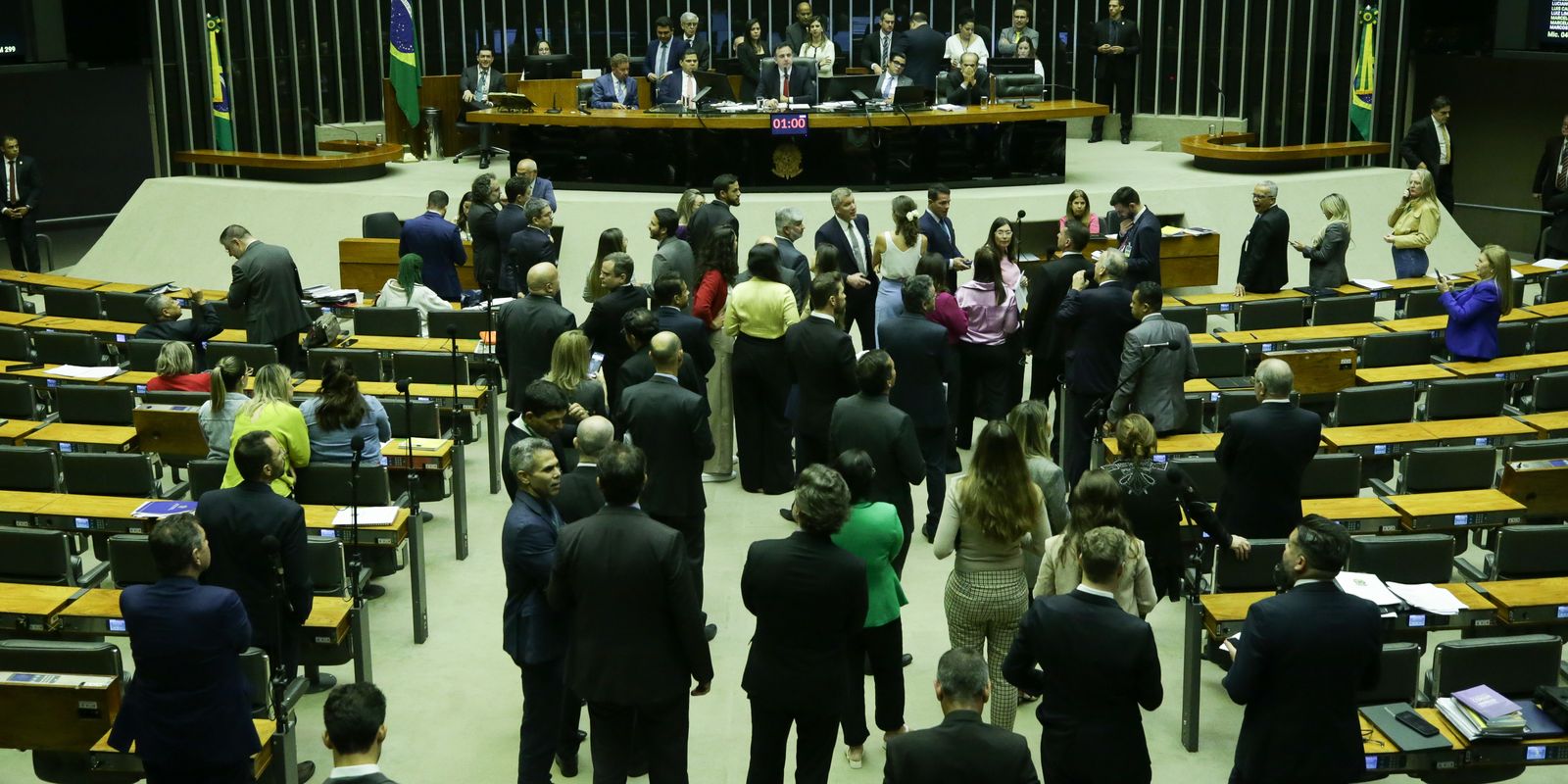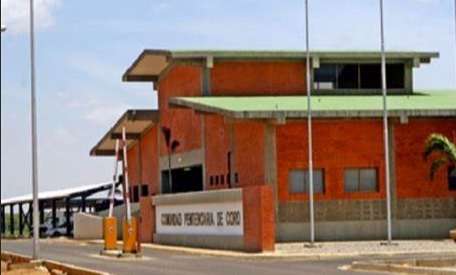The National Congress will have an intense week of important votes, starting this Monday (16), before the start of the legislative recess. On the agenda, the priorities are voting on the spending cut package presented by the federal government, which estimates savings of R$70 billion in two years, the Budget Guidelines Law Project (PLDO) and the Annual Budget Law Project (PLOA ).
The regulation of tax reform, approved last week by the Senatemust also be completed in the Chamber of Deputies.
The president of the Senate, Rodrigo Pacheco (PSD-MG), assured that there is full possibility of voting and approving the measures until next Friday (20).
“We have five working days next week. The president [da Câmara] Arthur Lira told me that he is willing to hold a session on Monday. It is fully possible to submit for consideration and voting in the Chamber, [e então] send it to the Senate. We will provide urgency for this process”, said Pacheco in an interview with journalists last Thursday (12).
In the Chamber, President Arthur Lira (PP-AL) ordered the cancellation of all committee meetings between December 12th and 20th, dedicating this period exclusively to discussion and voting on proposals in the Plenary.
Rodrigo Pacheco, who presides over the National Congress, the highest deliberation body made up of deputies and senators, plans deliberative sessions on Wednesday and Thursday, to vote precisely on the LDO and PLOA.
Until last week, the vote on the projects, especially the fiscal package, was uncertain due to parliamentarians’ dissatisfaction with a judicial decision by Minister Flávio Dino, of the Federal Supreme Court (STF), which reinforced the requirement for a series of transparency rules on the resources. In order not to make payment for amendments unfeasible by the end of the year, the federal government issued a joint interministerial ordinance and an enforceable opinion from the Attorney General’s Office (AGU) as a way of accelerating the release of resources.
Until the last update, by the Institutional Relations Secretariat (SRI) of the Presidency of the Republic, around R$7.7 billion in amendments had been released in recent days.
>> Understand below the priority votes of the Legislative Branch’s concentrated effort:
Tax package
Presented last month, the spending cut package consists of an ordinary bill (PL), a complementary bill (PLP) and a proposed amendment to the Constitution (PEC). Among the main points of the cost containment proposal are the medium-term reduction of the salary bonus and a cap on the adjustment of the minimum wage.
In the case of the minimum wage, PL 4,614/2024, proposed by the Government leader in the Chamber, deputy José Guimarães (PT-CE), is being processed urgently in the Chamber Plenary.
The text changes the current rule for minimum wage adjustments. Since 2023, the Brazilian salary floor is corrected by the previous year’s inflation, measured by the National Consumer Price Index (INPC) plus the growth of the Gross Domestic Product (GDP, sum of wealth produced in the country) of the previous two years.
The proposal maintains the inflationary correction, but the share of growth in GDP will be within the limits of the fiscal framework, being up to 2.5% above the previous year’s inflation. For 2025, the minimum wage would rise 2.9% above inflation, equivalent to the growth of the economy in 2023. With the expected limitation, it will rise 2.5%, remaining at R$1,515 next year, R$6 less than the current rule. In years in which GDP shrinks, the minimum wage will rise at least 0.6% above inflation, equivalent to the floor of the fiscal framework’s spending variation.
The salary bonus, a benefit that is equivalent to a 14th salary for those who earn up to two minimum wages (currently R$2,824) with a formal contract, will have its correction changed. The amount of up to R$2,640 will be adjusted for inflation in the coming years, instead of following the minimum wage appreciation policy.
With the salary bonus rising less than the minimum wage, the government predicts that the benefit will be equivalent to one and a half salaries from 2035 onwards. The change will be discussed through a PEC, which requires a quorum of three-fifths of the votes of the members of each House, in two rounds of discussion and voting. This quorum is equivalent to 60% of the total number of deputies and senators.
Another item in the spending cut package is PLP 210/2024, a complementary bill. The text, also proposed by deputy José Guimarães, authorizes the government to limit the payment of tax credits if there is a deficit in public accounts.
The text also provides for a limit on the growth of mandatory amendments to fiscal framework rules, restrictions on amendments to discretionary (non-mandatory) expenses of the Executive Branch and a reduction in the real growth of non-impositive amendments, so that the total amount of amendments will always grow below of the framework.
The project authorizes the Executive Branch to block and contingency parliamentary amendments in the same proportion applied to other discretionary expenses — up to a limit of 15% of the value. Complementary Law 210, of 2024, which regulated parliamentary amendments, already provided for contingency, but not blocking. Contingency occurs when there is a risk of not meeting the fiscal target for the year due to a drop in revenue. Blocking occurs when it is necessary to meet the expense limit.
The proposal also makes free the application of the financial surplus of eight public funds (Fund for the Defense of Diffuse Rights, National Anti-Drug Fund, Merchant Marine Fund, National Civil Aviation Fund, National Traffic Safety and Education Fund, Army Fund, Aeronautical Fund and Naval Fund).
As it is a complementary bill, the quorum required is slightly higher than the vote on an ordinary bill. In the case of the complementary law, approval depends on an absolute majority of votes from members of each legislative House: there are 257 votes in the Chamber and 41 votes in the Senate.
Budget and LDO
Last week, the Mixed Budget Committee (CMO) concluded voting on the 16 sectoral reports of the 2025 Budget (PLN 26/24). Now, the general rapporteur, senator Ângelo Coronel (PSD-BA) can prepare the final report for voting.
The president of the commission, deputy Julio Arcoverde (PP-PI) called a meeting for this Tuesday (17). The Annual Budget Law estimates revenues and establishes expenses for the following financial year.
Also on the agenda is the Budget Guidelines Law (LDO), a text that establishes the government’s priorities and fiscal target for the following year and guides the preparation of the Budget itself.
Tax reform
After the Senate approved, last Thursday (12), the main text of tax reform regulationthe Complementary Bill (PL) 68/2024, the matter returns to the Chamber for final review. The expectation is that the Plenary will approve it at the beginning of the week.
Deputies can also modify the text, excluding any changes made by senators. The text deals with the rules governing the incidence of Value Added Tax (Dual VAT), which is subdivided into two basic taxes on consumption: the Contribution on Goods and Services (CBS), at federal level, and the Tax on Goods and Services ( IBS), at state/municipal level.
In addition, there will be the Selective Tax (IS), the so-called “sin tax”, which is a surcharge applied to certain products and services considered harmful to health and the environment. These new taxes are a unification of five currently existing taxes (ICMS, ISS, IPI, PIS and Cofins).
The new taxes were approved in a constitutional amendment promulgated at the end of last year, in the first phase of the tax reform. Throughout 2024, the National Congress has been focusing on regulations, which deal with tax rates and how each sector of the economy will be impacted. The transition to the new tax model will be gradual, between 2026 and 2033.
*With information from Agência Senado and Agência Câmara.















